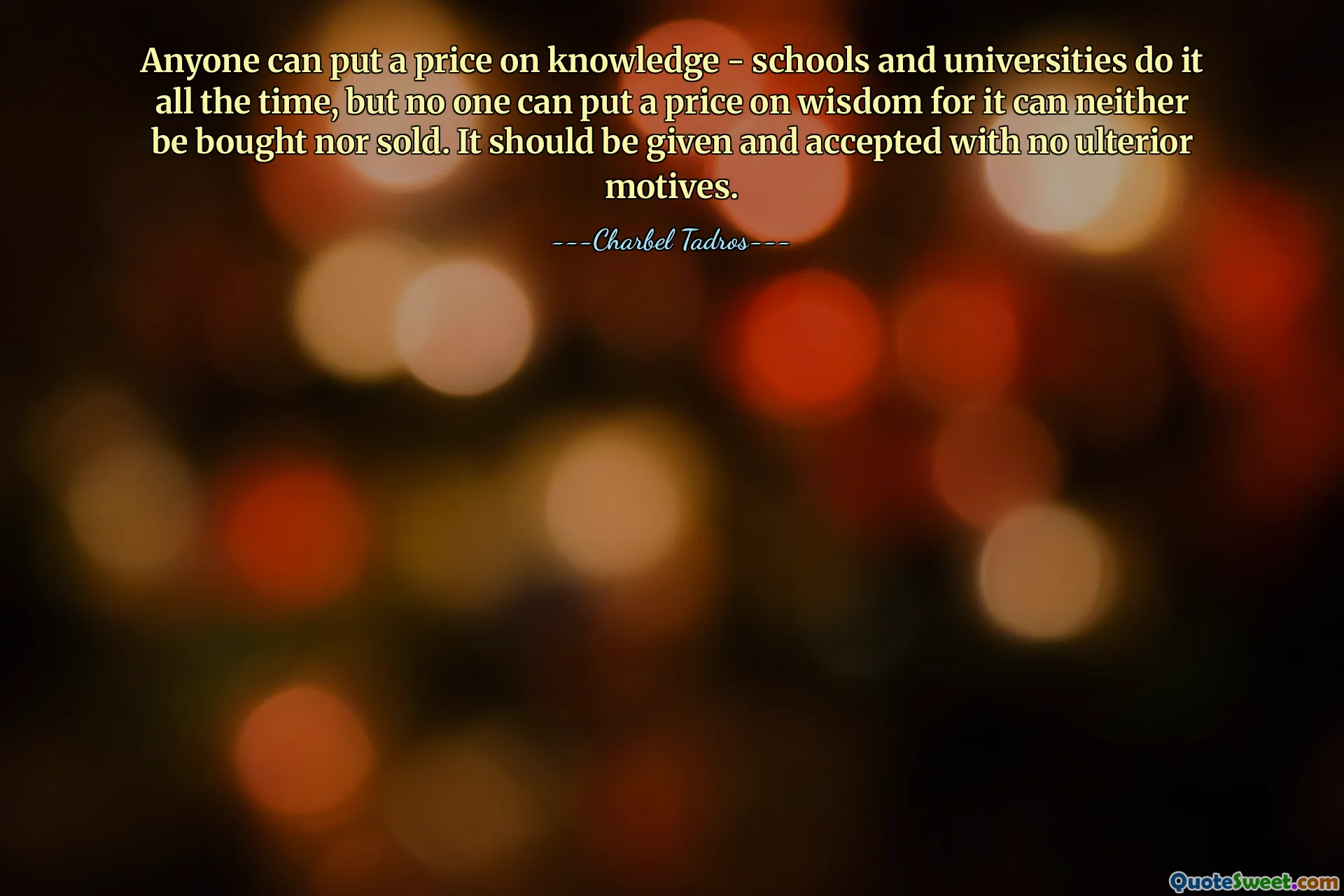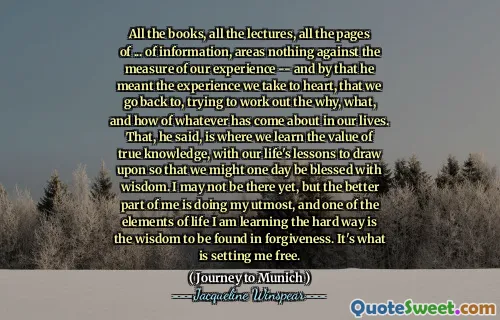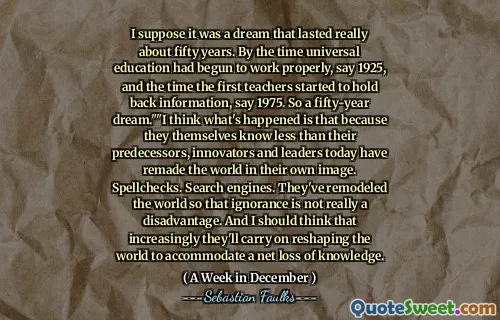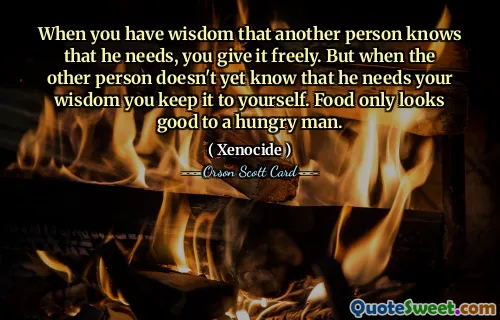
Anyone can put a price on knowledge - schools and universities do it all the time, but no one can put a price on wisdom for it can neither be bought nor sold. It should be given and accepted with no ulterior motives.
This quote draws a profound distinction between knowledge and wisdom, emphasizing the intrinsic and invaluable nature of the latter. Knowledge, with its tangible form as information, facts, and skills, can be commodified, as we often witness through the education system where schooling and degrees have a definite price. However, wisdom transcends the accumulation of information; it embodies insight, judgment, and experience that cannot be quantified or purchased. This highlights the essential nature of wisdom as something inherently generous — a gift shared selflessly and received humbly.
In reflecting on this, it becomes clear that wisdom's value lies not in its commercial aspect but in its impact on humanity and personal growth. The quote encourages us to reconsider how we approach learning and sharing our deepest understandings. It invites a culture where wisdom is freely exchanged, without expecting anything in return, advancing a collective elevation of thought and reason. The notion that wisdom should be given and accepted without ulterior motives is a call for sincerity, humility, and openness — qualities that foster authentic connection and progression.
Ultimately, this perspective challenges modern transactional views and invites us to honor wisdom as an invaluable treasure that enriches without cost, urging us to nurture environments where wisdom circulates freely and shapes a compassionate, enlightened society.
---Charbel Tadros---








